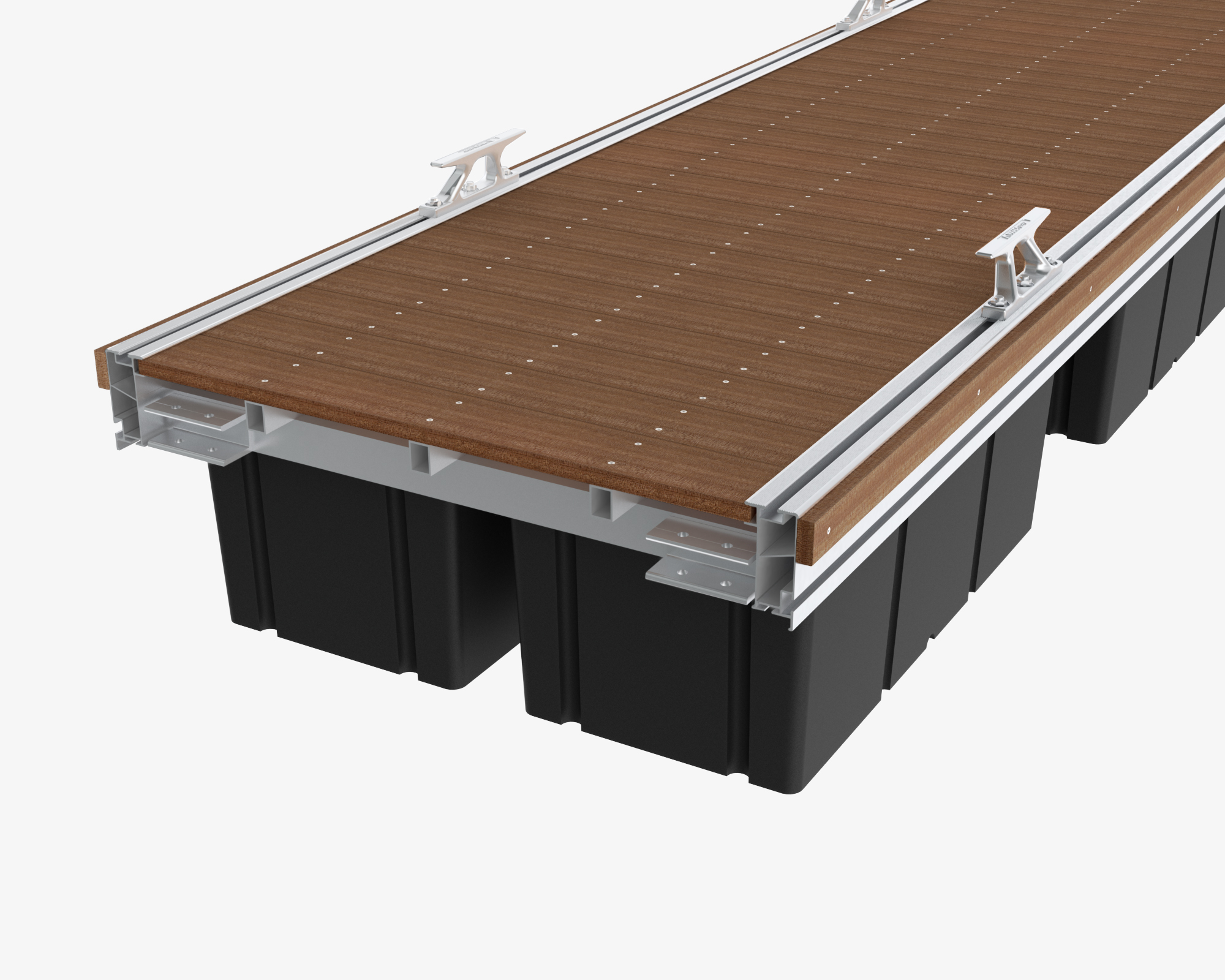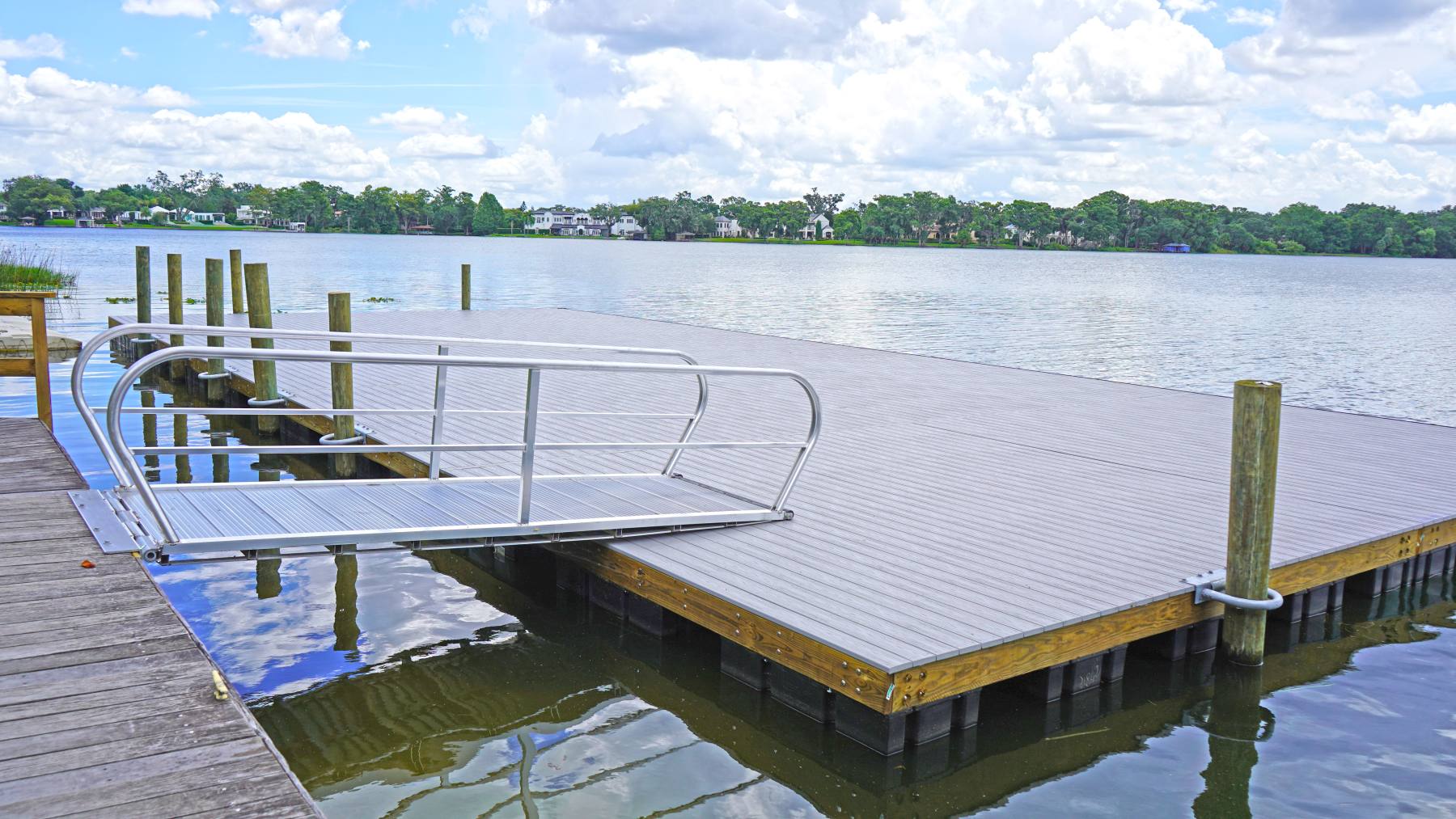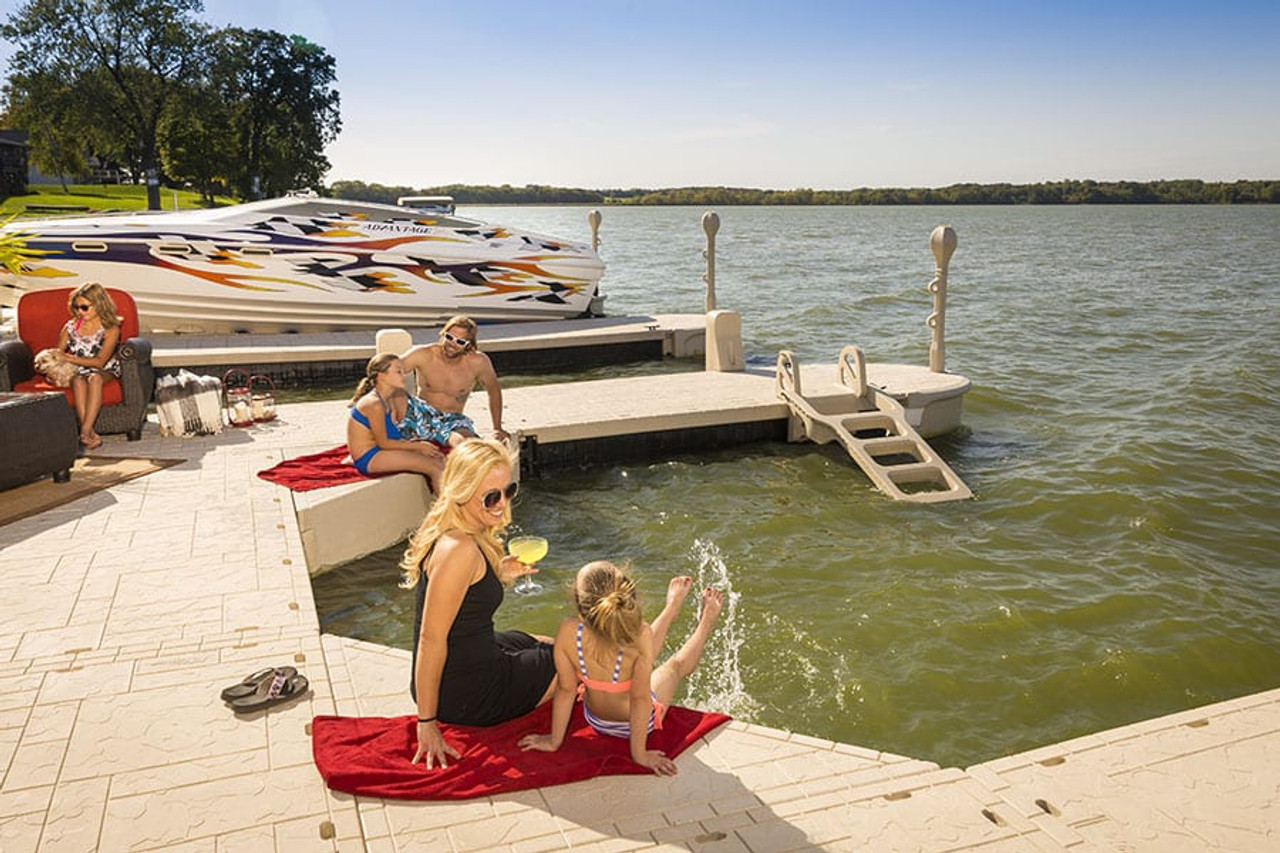Check out the Benefits of Choosing a Floating Docks Service for Your Waterfront Property
Check out the Benefits of Choosing a Floating Docks Service for Your Waterfront Property
Blog Article
The Ultimate Guide to Choosing the Ideal Floating Docks
Picking the perfect floating dock needs a thorough understanding of various aspects that affect both efficiency and longevity. Elements such as dock types, materials, and crucial attributes considerably influence your decision-making process.
Understanding Floating Dock Kind
When selecting a floating dock, it is vital to recognize the numerous kinds available, as each serves distinct purposes and applications. Floating docks largely come under 3 groups: modular, fixed, and pontoon docks.
Modular docks are made up of specific areas that can be conveniently constructed or reconfigured, making them excellent for transforming water degrees and varied usages, such as entertainment tasks or business procedures. Their versatility enables personalization based on particular needs.

Pontoon docks are characterized by their resilient structure, typically composed of multiple pontoons that offer stability and support. They are especially well-suited for larger vessels and are generally utilized in marinas or for waterside residential properties. Comprehending these types aids in picking the most suitable floating dock to meet particular demands, ensuring ideal capability and safety.
Secret Products for Toughness
Selecting the ideal materials for floating docks substantially impacts their sturdiness and long life. One of the most common materials include timber, plastic, steel, and composite products, each offering distinctive benefits and constraints.
Timber, typically favored for its aesthetic appeal, needs routine upkeep to hold up against dampness and degeneration. Pressure-treated lumber can enhance resistance to rot, however it might still be at risk to parasites and weathering.

Plastic docks, constructed from high-density polyethylene (HDPE), are immune to corrosion, UV radiation, and impact, making them a preferred option for coastal settings. Their lightweight nature likewise helps with easy setup and relocation.
Steel docks, typically created from light weight aluminum or galvanized steel, give exceptional stamina and sturdiness. They are resistant to rust, especially when dealt with, however might need additional insulation to stop warm buildup in hot environments.
Composite products, combining timber fibers and plastics, provide the advantages of both wood and plastic, withstanding moisture and fading while calling for minimal upkeep. - floating dock company
Ultimately, the option of products should line up with ecological conditions, meant usage, and upkeep preferences to make sure the floating dock stays useful and aesthetically pleasing with time.
Necessary Features to Take Into Consideration
While the choice of products is critical, thinking about crucial features for floating docks is equally vital to guarantee ideal efficiency and user contentment. One key function to analyze is the dock's buoyancy capability, which identifies just how much weight it can sustain without immersing. floating dock services. This is essential for suiting watercrafts, individual watercraft, and even leisure tasks
Furthermore, transportability is a significant consideration. Depending upon your requirements, you may want a dock that is simple to take apart and deliver, specifically if you intend to transfer it seasonally. Security is an additional crucial feature; a well-designed floating dock needs to minimize movement brought on by wind and water currents, providing a safe platform for individuals.
Safety functions, such as non-slip surfaces and rounded edges, are likewise important to avoid accidents, specifically in wet conditions. Think about the availability of devices, such as bumpers, ladders, and cleats, which can boost the performance of your dock.
Installation and Upkeep Tips
Setting up and maintaining a drifting dock requires mindful planning and focus to information to ensure its longevity and ideal efficiency. Begin by choosing an appropriate area that reduces direct exposure to strong currents and waves, which can create deterioration. Ensure that the water deepness suffices for the dock's elevation and that it is secured safely to prevent motion.
During setup, follow the maker's guidelines carefully, as inappropriate assembly can endanger security. Use high-grade materials immune to deterioration, such as aluminum or dealt with click to investigate timber, to enhance longevity. Consistently check all parts, consisting of floats, ports, and securing systems, for signs of damage or wear.
Upkeep is crucial for expanding the life of your dock. Tidy the surfaces occasionally to prevent algae accumulation and look for any kind of loose fittings that might require tightening. If your dock utilizes flotation protection devices, ensure they continue to be complimentary and intact from leaks. In addition, take into consideration applying safety finishings to wooden elements to reduce weathering impacts. By adhering to these setup and maintenance suggestions, you can delight in a trusted and useful floating dock for many years to find.
Budgeting for Your Dock
Budgeting for your dock is an important step that can considerably impact your total complete satisfaction and investment in a beachfront residential or commercial property. Developing a clear budget plan helps you browse the different choices available and ensures you make educated decisions that align with your economic capacities.
Begin by figuring out the size and layout of the dock you need, as these elements will greatly affect the expense. Floating docks can vary substantially in price, depending on products, buoyancy, and functions like devices and ramps. Study different producers and providers to compare prices and understand the marketplace worth.
In addition to preliminary expenses, consider continuous expenditures such as maintenance, insurance policy, and prospective fixings. Allot funds for these persisting costs to prevent shocks down the line. It's also prudent to spending plan for any needed authorizations or evaluations, which might be required by regional guidelines.
Lastly, remember the prospective return on financial investment. A well-planned dock can enhance your home's worth and allure, providing a positive monetary influence in the lengthy term. By budgeting efficiently, you can make sure that your dock fulfills your needs without jeopardizing your economic security.
Verdict
In verdict, choosing the perfect floating dock requires an extensive assessment of numerous aspects, including dock kinds, materials, essential features, and installment processes. Careful factor to consider of more helpful hints budgetary restraints will further make certain a sound financial investment.

While the selection of products is essential, thinking about necessary features for floating docks is equally essential to make sure ideal efficiency and customer satisfaction.Setting up and maintaining a visit site floating dock requires careful planning and interest to detail to ensure its durability and ideal performance. Floating docks can vary substantially in rate, depending on products, buoyancy, and attributes like devices and ramps.In verdict, selecting the perfect floating dock necessitates a comprehensive assessment of various elements, including dock types, materials, important features, and installation processes.
Report this page